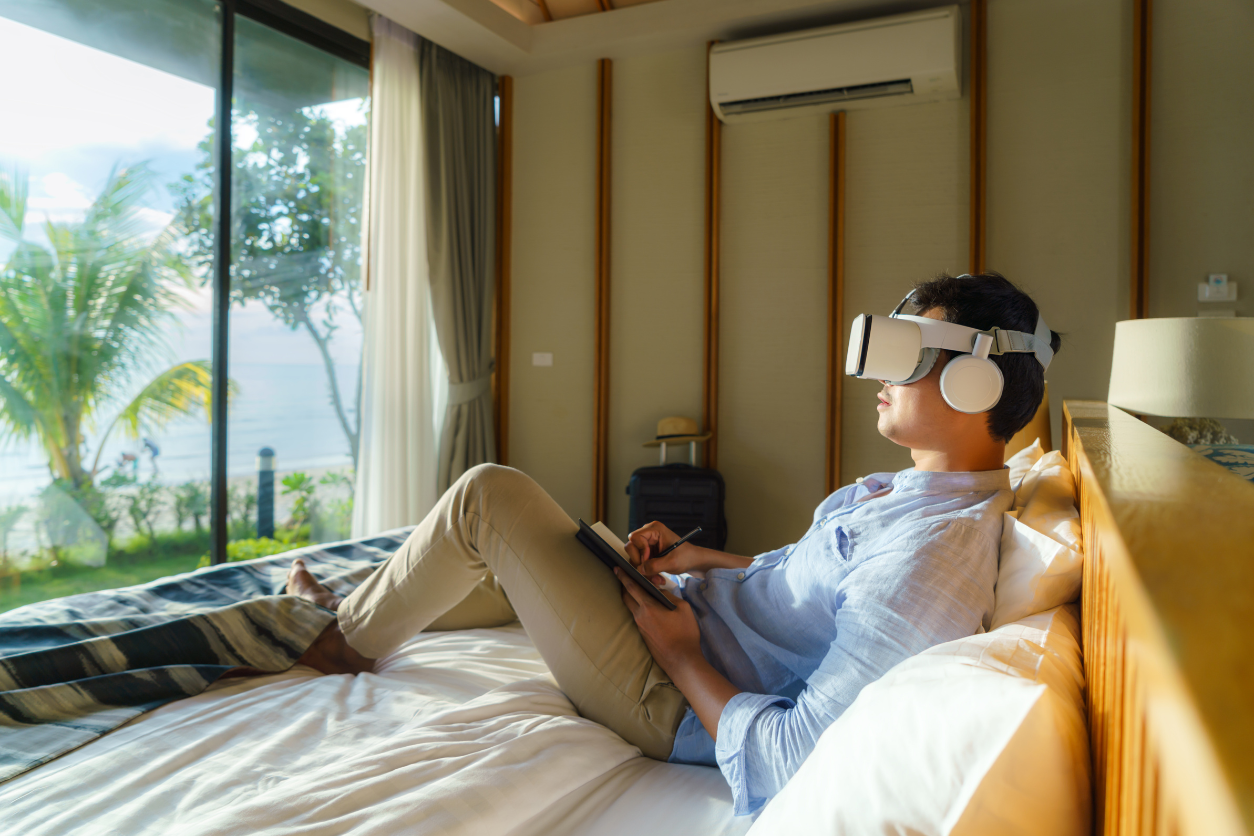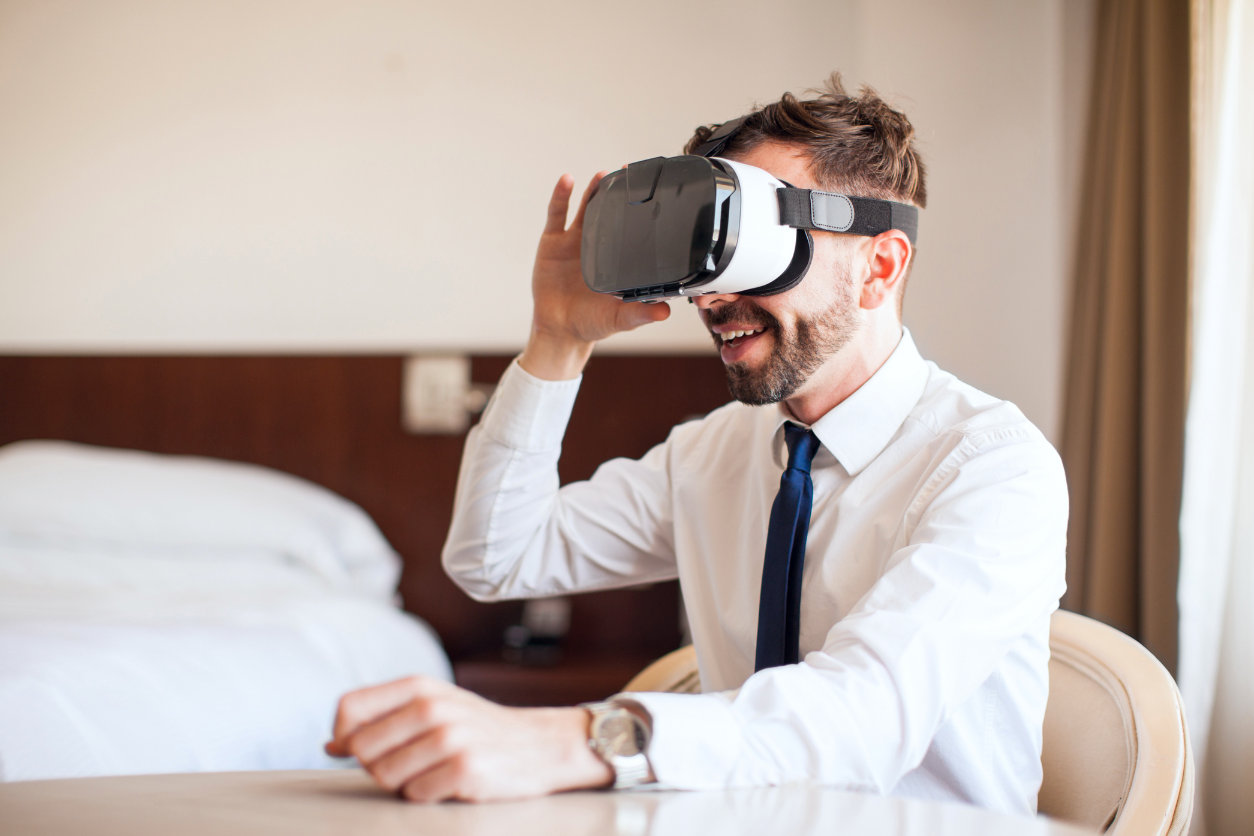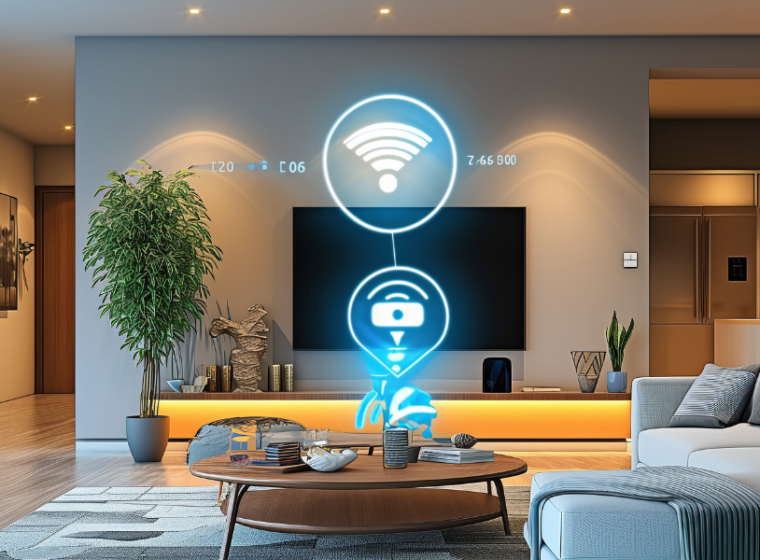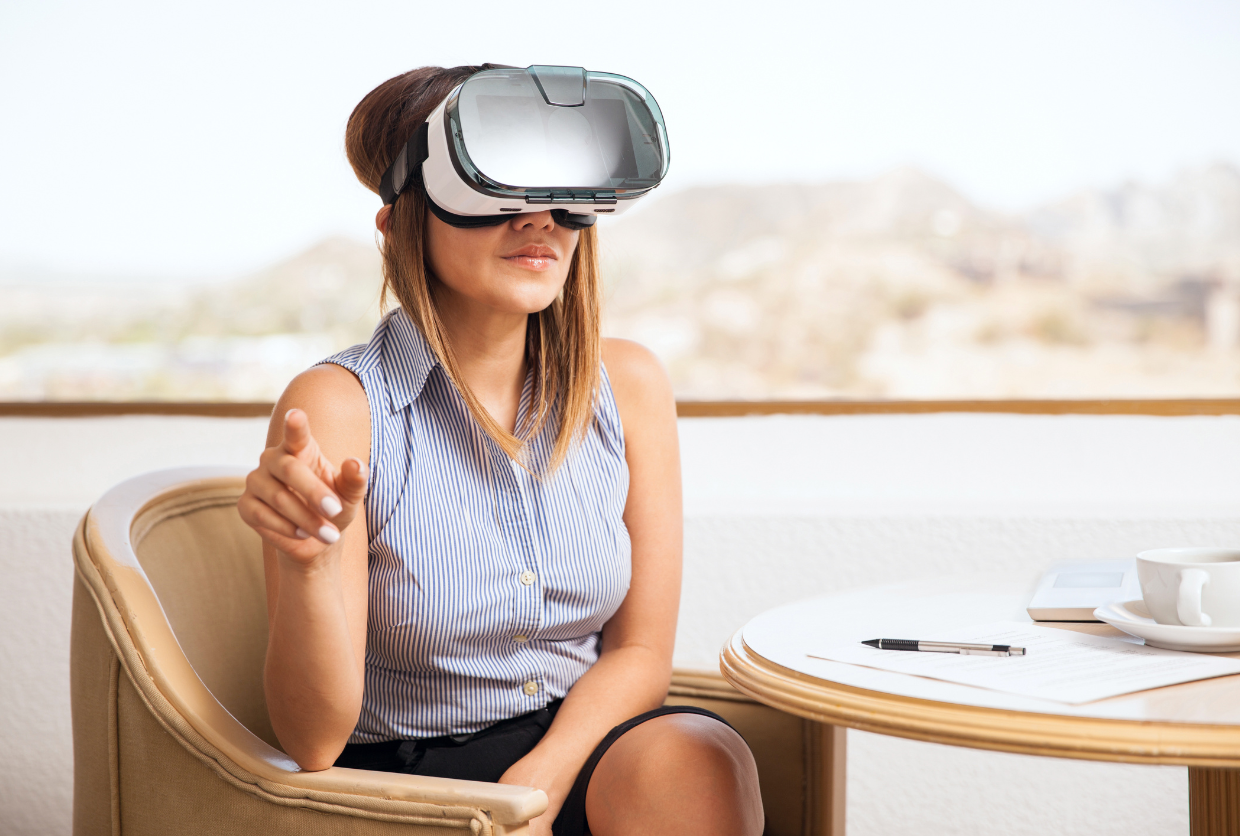Integrate Virtual Reality for Powerful New Guest Experiences
Virtual reality in the hotel industry is no longer a futuristic concept. It’s here, and it’s transforming the guest experience — even before they book their accommodations.
The integration of virtual reality in hotels isn’t just about entertainment. It extends to various aspects like bookings, tours, and training. By harnessing the power of virtual reality, hotels can offer guests unprecedented levels of interactivity and service while streamlining their operations for maximum efficiency.
What is Virtual Reality in Hotels?
The digital landscape has been significantly transformed with the advent of virtual reality (VR), especially within the hospitality industry. VR involves creating virtual spaces that users can interact with as if they were real, facilitated by advanced computer technology.
In hotels and other organizations within the hospitality sector, VR serves as a groundbreaking tool for enriching the customer experience. This tech innovation extends from offering enticing VR hotel tours and in-room entertainment to training employees and enhancing hotel marketing strategies.
Benefits of Implementing Virtual Reality in Hotels
The integration of VR into the hospitality sector is a revolutionary development. VR technology, known for its immersive capabilities, has numerous benefits when applied to hotel operations — here are just a few.
Virtual Hotel Tours: A New Dimension in Hospitality
Virtual reality serves as a powerful marketing tool within the hotel industry, specifically via VR tours. A well-executed VR tour creates captivating visual narratives that highlight your distinct selling points while positioning your hotel brand against the competition.
An excellent example would be Kimpton Gray Hotel’s 360° VR tour where potential guests can immerse themselves in the sleek guest rooms, stunning suites, and contemporary event spaces that make this boutique hotel unique. This adds depth to traditional photo-based presentations and creates more compelling reasons for potential guests to book.
A successful VR video marketing campaign involves more than simply filming guest rooms or facilities. It’s about crafting engaging spaces where viewers can envision themselves enjoying their stay at your property.
An often overlooked yet crucial element while designing immersive experiences is narration. Choosing the right voice for your narration is key — it should match the tone and style of your experience.
Voiceover narration aids in enhancing the immersion of your VR experience. Choosing a narrator that matches the tone and style of the experience is as important as making sure that the narration is concise and conversational, while utilizing pauses and intonation to provide impact and clarity to the audience. Narration not only guides viewers through different areas but also underscores key features along with benefits throughout their journey.
Incorporating virtual reality into hotel marketing strategies provides unparalleled transparency. When customers are able to see precisely what they’re getting, their confidence in decision-making increases significantly.
Beyond just building customer trust and confidence, offering such technological amenities emphasizes your commitment to innovation and delivering superior guest experiences. A hotel VR tour highlights these aspects while creating differentiation from competitors.

Virtual Travel Experiences
In addition to showcasing physical spaces within hotels themselves, an effective use case for VR lies in offering prospective visitors glimpses into local culture and nearby attractions as part of these engaging 360° VR presentations. For instance, if you manage a resort in Thailand, then why not include VR previews of popular tourist spots like temples and local beaches?
This approach prompts customers to make important decisions based on what lies outside your property — from historical landmarks to scenic landscapes. In turn, hotels can offer comprehensive pre-trip planning resources right from their living rooms. This unique form of digital storytelling aims to evoke emotions among viewers beyond what traditional photos can offer.
Virtual Reality Booking Software: A Game Changer for Hotels
Another application of virtual reality with immense potential lies within VR booking software. This cutting-edge technology offers an innovative way to streamline administrative operations while offering an immersive platform for guests who are arranging their accommodations. VR tours can be integrated with booking software to help facilitate guests’ decisions based on which rooms they wish to stay.
From an operational perspective, implementing VR-based booking systems could lead to significant efficiencies. For instance, it can reduce time spent answering queries about room layouts and views since questions would already be answered via immersive presentation.
Virtual Training for Employees: A New Era in Hospitality
Integrating virtual reality into employee training initiatives can revolutionize learning experiences. VR training extends beyond traditional lectures and manuals to a more hands-on approach where employees learn by doing. This interactive method simplifies complex concepts and aids memory retention.
For example, housekeeping staff can utilize VR simulations to practice cleaning procedures or room setups without disrupting actual guests. Meanwhile, front desk staff can be simulated on how to deal with disgruntled guests and how to answer difficult questions.
The use of VR can also expedite the onboarding process for new employees. Before their first day at work, new hires can take a virtual tour around hotel premises, which allows them to familiarize themselves with different areas within an establishment. This early exposure reduces anxiety associated with starting new jobs while enabling them to start off strong once they officially start their first shift.
In addition to operational tasks, safety training has been greatly enhanced using VR. Given the unique challenges presented by emergency training, VR-based safety programs offer a safe environment where simulated emergencies are navigated, allowing staff to grasp these critical protocols without any real-world risks involved.
By helping to eliminate physical resources that are typically associated with printed employment and other onboarding resources, another major benefit offered by people-driven VR frameworks is cost-effectiveness. Savings extend from finances to time; staff can make easy updates whenever there are changes in procedures or policies, further contributing towards organizational efficiency gains.

In-Room Virtual Reality Gaming
Today’s modern travelers seek more than just basic amenities from their chosen accommodations — they crave unique in-room experiences and state-of-the-art technological features. One such feature is VR gaming. These gaming systems can transport guests to different worlds or offer exhilarating games without leaving their rooms.
Partnering with a reputable company that specializes in designing and properly maintaining hardware and connectivity setups is crucial to ensuring seamless operation and low overhead strains on staff. In-room VR technology necessitates high-end equipment, which can be expensive to acquire and maintain against regular wear-and-tear caused by usage patterns among guests.
How Blueprint RF Can Help VR Technology in Hotels
Blueprint RF is a premium provider of hotel WiFi and managed network solutions for hospitality businesses. There’s no doubt that VR and augmented reality (AR) are two major technology trends that are reshaping many processes and functions in the hospitality sector. To aid in the adoption of these technologies, Blueprint RF provides the necessary infrastructure and support for hotels to implement VR experiences for their guests. Contact Blueprint RF to learn more.











